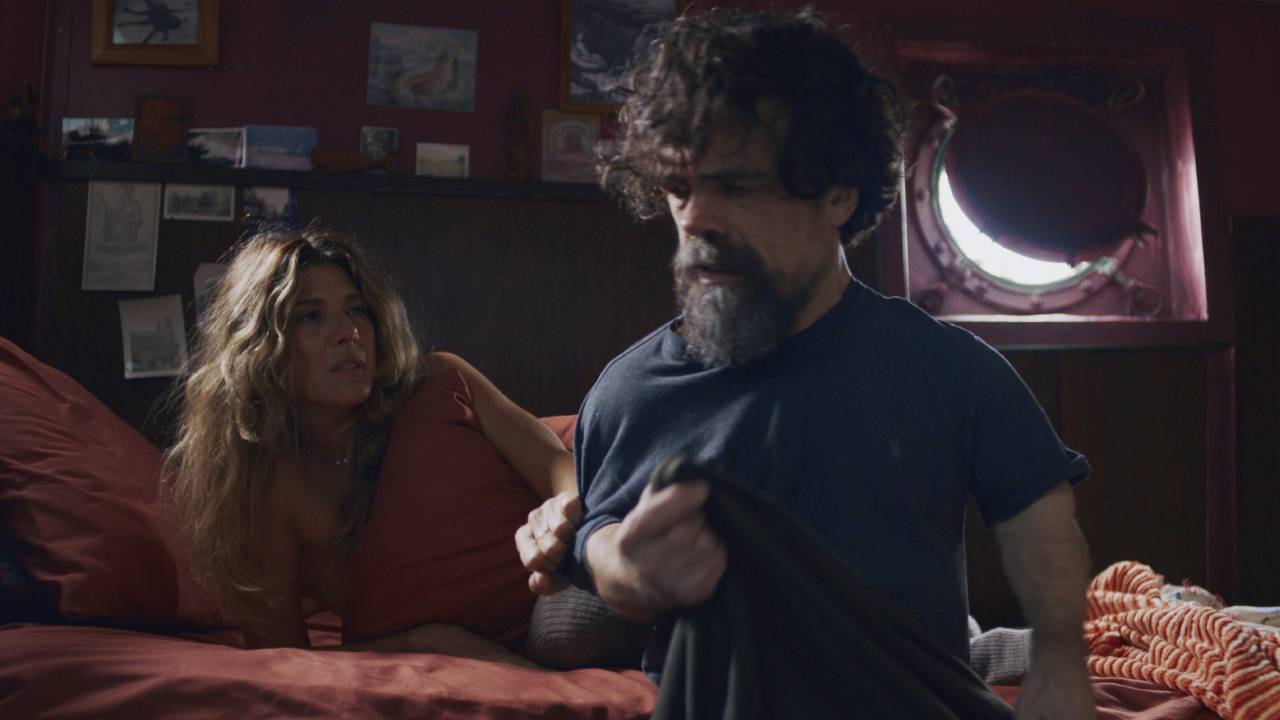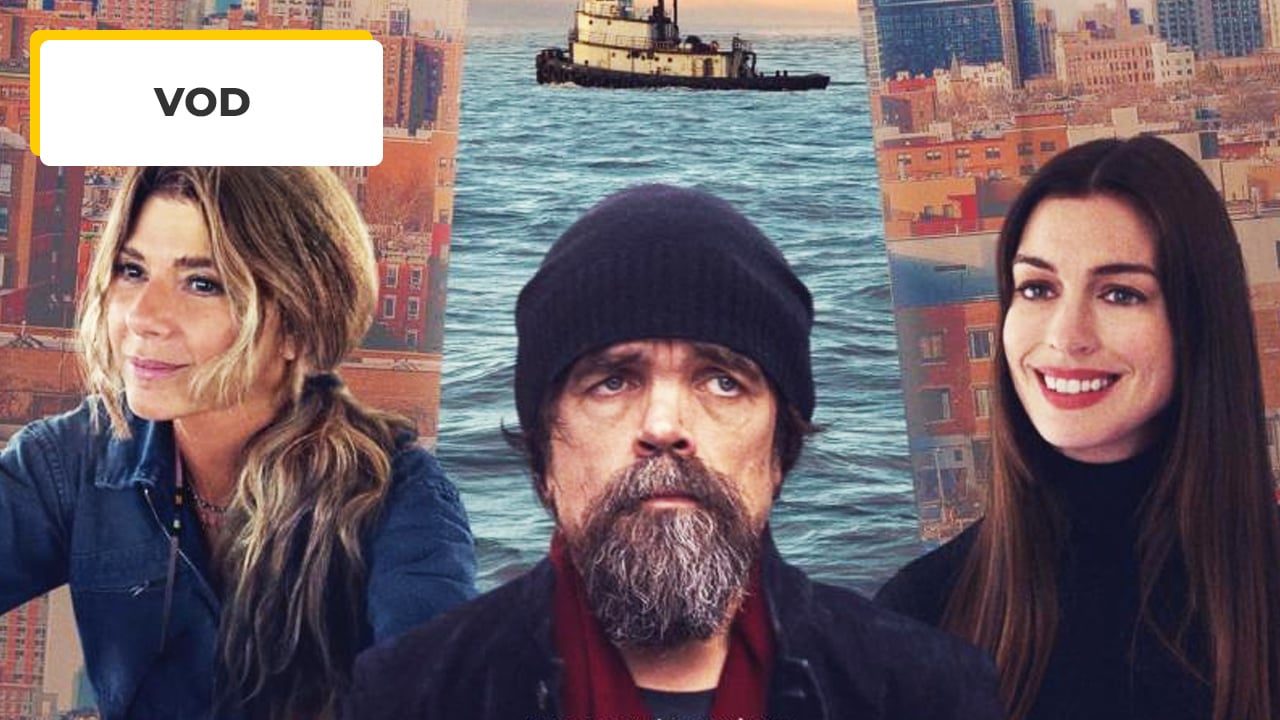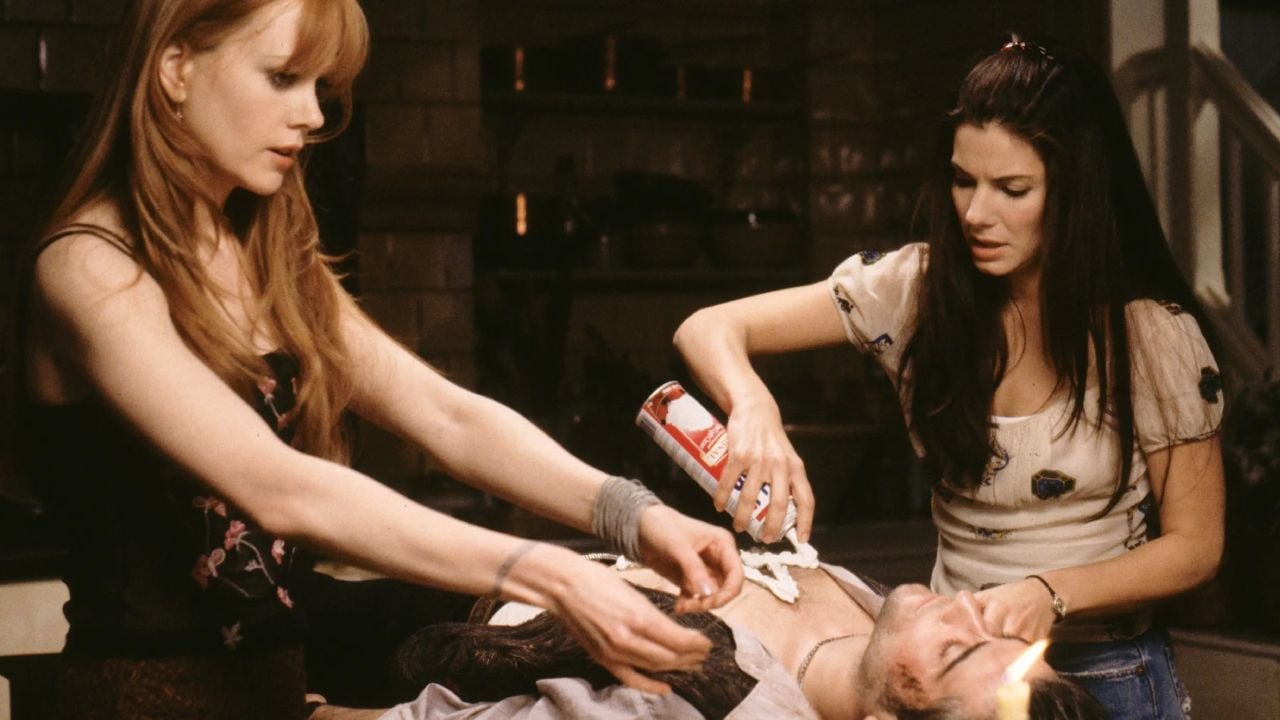With six films under her belt in less than thirty years, Rebecca Miller is a rare filmmaker. But his journey has brought him more than once to the stage of the Deauville American Film Festival. It was there that she presented The Ballad of Jack and the Rose (in which she directed her husband Daniel Day-Lewis), The Private Life of Pippa Lee, and Addicted to Romance, her last feature film to date.
which was called She Came to Me at the time of the presentation, in the climate of the screenwriters (and actors) strike, for which Rebecca Miller expressed her support from Normandy, although she took advantage of the exception to discuss her new opus.
So we spent a few minutes talking with him about this Peter Dinklage, Marisa Tomei and Anne Hathaway comedy-drama about a composer with blank page syndrome. But also his writing, the personal side of storytelling, and his relationship with romantic comedy.
AlloCiné: I think that when a screenwriter talks about blocking, it refers to his own blank page syndrome. Was this the starting point of “Addicted to Romance”?
Rebecca Miller : Yes. I wrote a story for the first time in Dublin and the writer’s blank page syndrome. Years later, he became an opera composer who stops by when he has the opportunity to return to center stage. But this story is somewhat inspired by something that happened to me a few years ago.
I experienced very severe blank page syndrome, I was completely blocked. Which, for those who write, is a really existential situation, as you can imagine. (laughs)
Why did you decide to turn this writer into a composer?
There are several reasons. One of my children is now a composer and played the violin before teaching composition. It was with him that I began to discover and appreciate opera. New opera. I started watching new operas and was very interested in a medium that I find so emotional and flexible. You can do almost anything in opera because it is not governed by the laws of what can happen in the world.
It’s very free and I thought to myself that it would be great to have two operas in a movie. that we have the finale of two operas on the screen. I love challenges and I found this one to be huge.
I experienced very severe blank page syndrome, I was completely blocked. Which, for those who write, is a truly existential situation.
In general, how much do your personal experiences inspire the films you make?
I don’t use them raw. That is, I am not used to reproduce things as they happened, to show them as they are in the script. It may have happened, but it is diluted in this story that I am telling so that I can talk about my concerns. There’s definitely a lot of me in Steven’s character, and at the same time, I’m not entirely me. I can make decisions on my own behalf.
What happens more often is that everything from the plot to the characters turns out to be a cocktail of certain aspects and experiences of yourself, as well as what you have observed and heard.
You use the word “observe”: Do you, like Stephen, observe people for ideas, as he does when he walks his dog? The characters in your films and what you say in them are very tangible.
quite ! I am very interested in people. I really care about people. This motivates me the most in my work. I’m also a very visual person, but what drives me to filmmaking in particular is that I continue to be fascinated by people.
I don’t immediately think about what I’m going to use in the film, or if I’m going to do it, but there are often things that surprise me. And I always listen. It’s the writer’s curse.
Rebecca Miller at the Deauville Festival
Apart from people, your films often revolve around relationships and the pursuit of happiness. Is this done on purpose?
Definitely yes, because I believe in this idea that people change or create each other. People are only truly who they are when they are in relationships with other people, and that extends beyond childhood. There is a lot of emphasis on what we learn in childhood, and rightly so, because there are many important things going on.
But I think we can also meet someone in their forties or forties who can change us for better or worse. And I find it very interesting because it is a dramaturgy. Otherwise, we’re just watching someone go through the experience alone.
It also feeds acting: acting means listening and responding. This is the essence of good acting. So when, here, you watch Peter and Marisa do the bar scene where they meet for the first time, it’s going to be a master class for me in listening and responding. And we see how they constantly change each other.
“Addicted to romance” also refers to the bad effect that romantic comedies have on people. Is that how you feel personally, given that your films are sort of anti-romantic comedies?
Regardless, I’m interested in the romantic comedy form. In the sense that to me it’s one of the great American art forms, which brings us back to Ernst Lubitsch and Billy Wilder and all these wonderful directors who made these films. But the genre has been devalued, while there is room for complex characters, anomalies.
Show that one thing can be true in a character, but also the opposite. Can show someone who is suffering, but through the prism of forgiveness and lightness. That was my goal here: Steven is very depressed when we meet him, but because Peter is such a great actor, he conveys his anxiety and fear and sadness in a comedic way, which is very difficult.
Whether I’m looking at things from a dramatic or a more comedic perspective, I’m always interested in how a character encompasses conflicting traits.
I’m a very visual person, but what drives me to make films in particular is that I continue to be fascinated by people.
It’s also about how you can’t always control things in life, and not just for the main character.
Yes, this is something I often mention in my films. Because I think that knowing that we can’t control everything in life is scary, and that we have to accept that we live in a somewhat chaotic world, that we don’t necessarily know what’s going to happen. And that you cannot control who is around you, who you love and who you want to protect.
I have noticed another motif in my films, even if I don’t say it consciously: escape. In a way, being addicted to romance is a perfect life arrangement. Everyone’s life is evolving and everyone is moving closer to their vision of freedom.
Which is sometimes counter-cultural, just like Patricia does In the context of the materialistic world in which we live. Or how children search for their first love, something we rarely do as adults.
Before you became a screenwriter and director, you were an actor: how much does that help you when you’re writing a character or directing?
It helps me a lot. I always knew that acting was not my main talent, but I think I had enough experience. Study enough and experience some of the negative things that can happen to them. It also made me understand that you have to approach each actor differently because they all have different needs. You can’t talk to everyone in the same way, you have to know how to adapt.
Namely, the fact that each actor does not react in the same way to a given situation.
absolutely. Some actors need space. Others you refer to them for close cooperation. You should be able to feel it. And while you can’t always aim right, I feel like there’s one thing I’m good at and that’s understanding people.

Marissa Tomei and Peter Dinklage
In which category of actors do you place Peter Dinklage?
He is very independent as an actor, but also very sensitive. If you say one little thing, it soaks it up like a drop of paint in a glass of water. So you have to be very economical when talking to him because he is very intelligent. And so sensitive. But, on the whole, his instincts are remarkably strong. And he’s very realistic, he manages to make the scenes very real, which I love.
Did Bryce Dessner credit the film’s music? Since they worked together on “Cyrano”.
It’s more of a coincidence: thanks to Katya Labek, the pianist who plays in the film. He is a close friend of my wife I really wanted it to be in the movie somehow. And it was he who recommended Bryce to me and told me that he wrote operas. and concerts for him and his sister Mariel LaBecke. Apart from film music and his presence in the band The National.
He has a tremendous knowledge, not only of his own music, but of the opera that is in the film, which is incredible. I wanted the piece to sound genuine, not like a pastiche or like a film composer writing things that sound like modern opera. Who really writes to be taken seriously. Although there is an element of comedy in the film, it wouldn’t work if it wasn’t real.
Comments collected by Maximilien Pierret in Deauville on September 3, 2023
Source: Allocine
Rose James is a Gossipify movie and series reviewer known for her in-depth analysis and unique perspective on the latest releases. With a background in film studies, she provides engaging and informative reviews, and keeps readers up to date with industry trends and emerging talents.




![Everything for pre -light: What awaits you in the 23 Episode of Wednesday on July 16, 2025 [SPOILERS] Everything for pre -light: What awaits you in the 23 Episode of Wednesday on July 16, 2025 [SPOILERS]](https://fr.web.img2.acsta.net/img/0e/be/0ebe245c885086964e20791398a65cb8.jpg)

